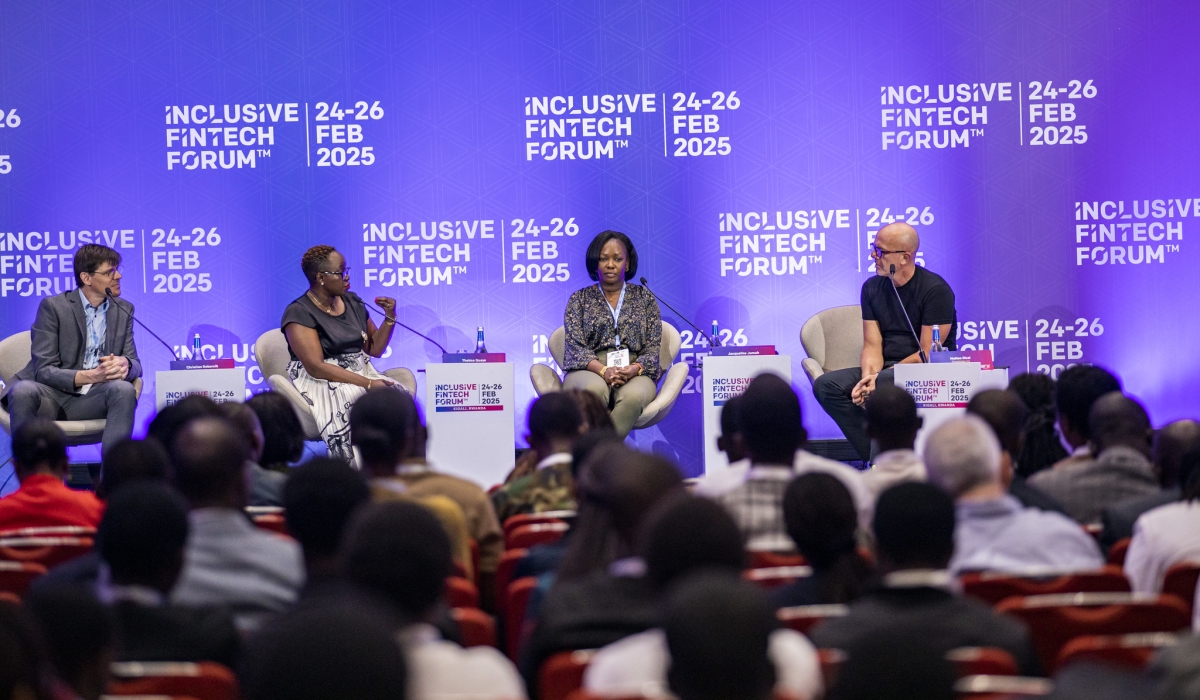African innovators and entrepreneurs are expected to play a key role in advancing digital trade under the African Continental Free Trade Area (AfCFTA) Digital Trade Protocol, a framework aimed at enhancing cross-border digital commerce across the continent.
Experts highlighted this potential during the second edition of the Inclusive Fintech Forum (IFF) on February 24, an event focused on fostering economic inclusivity through financial technology. Organized by the Kigali International Financial Centre (KIFC), Singapore’s Elevandi, and the National Bank of Rwanda (NBR), the forum attracted high-level participants, including heads of state, global regulators, policymakers, and investors.
The Digital Trade Protocol outlines key areas such as market access, digital trade facilitation, data governance, consumer trust, inclusion, emerging technologies, government transparency, and capacity building. According to Talkmore Chidede, Senior Digital Trade Expert at the AfCFTA Secretariat, the protocol is designed to ensure a secure digital ecosystem while enabling affordable and inclusive digital payments and safe data movement across borders.
“The digital ecosystem environment that we are creating is safe and secure, with responsibilities and guardrails in place to ensure the protection of transactions,” Chidede said. He noted that the protocol would address major challenges in the financial technology (fintech) industry, such as eliminating the need for businesses to register in multiple countries.
Despite the protocol’s promise, fintech companies still face barriers to growth, including complex licensing processes and limited digital infrastructure. Bobson Rugambwa, CEO of MVend Limited, emphasized the difficulty of navigating regulatory requirements across multiple African markets. “We can’t make digital payments seamless if we have to go through the regulatory challenges of acquiring licenses in all African markets,” he said, urging for standardized licensing across the continent. Rugambwa also noted that building data infrastructure remains costly, and that harmonized regulations could help reduce these expenses.
Experts believe that the AfCFTA Digital Trade Protocol could be a game changer for fintech innovation by encouraging investment and regulatory alignment. Michelle Nsanzumuco, CEO of Global Policy House, stressed that clear and consistent rules not only support tech entrepreneurs but also attract the private sector, which is critical for boosting intra-African trade. She added that small and medium-sized enterprises (SMEs)—which make up 80% of Africa’s economy—stand to gain significantly from the protocol’s implementation.
Beyond regulation, access to funding remains a challenge for technology startups. Nsanzumuco pointed to digital assets as an emerging alternative for innovators seeking financing.
Experts concluded that strengthening regulatory frameworks, increasing investment, and fostering collaboration are essential for Africa to fully capitalize on digital trade and drive economic growth. The AfCFTA Digital Trade Protocol was adopted in February 2024, with eight annexes approved in February 2025 during the African Union Heads of State meeting in Ethiopia.

